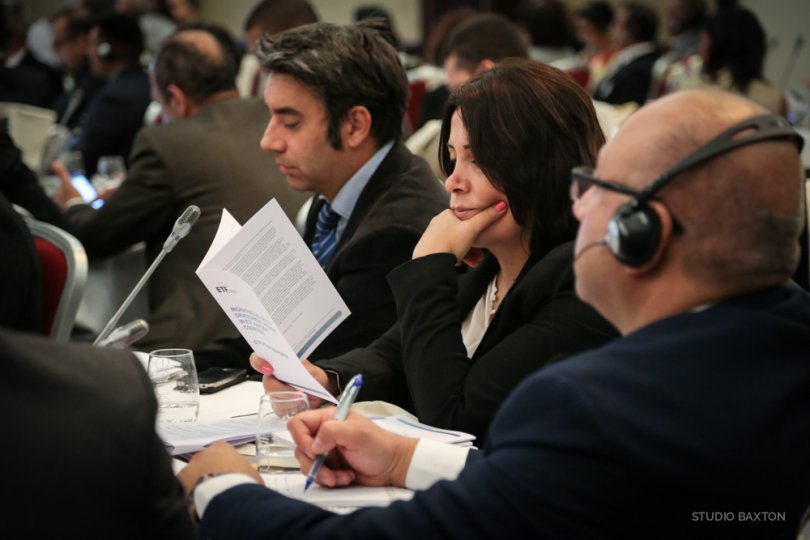
Transforming vocational education and training: ETF monitoring initiatives and deliverables
KIESE, the Torino Process and the Copenhagen Process - the tools helping to shape VET for the future
Each year, the ETF gathers and analyses information and data to monitor developments in education, skills and employment across its partner countries. The results help countries understand what is working well and where improvements are needed. They also support informed decision-making on how to manage and adapt policies in support of vocational education and training (VET) and lifelong learning.
The ETF has three complementary monitoring initiatives: the KIESE (Key Indicators on Education, Skills, and Employment) data collection, the Torino Process, and monitoring under the Copenhagen Process, an EU flagship initiative in VET.
KIESE data collection
The KIESE data collection forms the quantitative backbone of all ETF monitoring activities. Each year, in close cooperation with international partners and national statistical offices, the ETF compiles a comprehensive dataset from national and international sources, including UNESCO, Eurostat and the OECD. This data is then used to report on trends and developments in education, skills and employment.
Please see here the full selection of KIESE definitions for 2025.
Torino Process
The Torino Process is an ETF flagship initiative, launched in 2010, that tracks developments in education, skills and employment across the ETF's partner countries in Eastern and South Eastern Europe (including Türkiye), Central Asia, and the Southern and Eastern Mediterranean.
Since 2023, the Torino Process monitoring framework has used a selected subset of KIESE indicators, grouped into 'system performance indices', and combined them with qualitative evidence to assess how effectively partner countries' VET systems are delivering on key commitments to learners, such as access, quality, relevance and system efficiency. Please see here the full list of KIESE indicators used in the Torino Process.
Countries can also engage in voluntary reviews of their VET policies. These reviews help contextualise monitoring results and identify ways to improve the performance of VET through targeted policy interventions. You can find more information about the monitoring and review strands of the Torino Process in the 2025 edition of the Torino Process Guidelines.
KIESE and Torino Process monitoring deliverables
The KIESE and Torino Process monitoring activities produce deliverables in three main categories: country-level reporting, cross-country reporting, and thematic reporting.
1. Country‑level reporting
- Country fiche: summarises key policy developments in education, training, and employment
- Torino Process monitoring report
- From 2025: integrated country fiche covering annual monitoring results
2.Cross‑country reporting
- Comparative analysis for all countries of monitoring results
- Maps regional and cross‑country trends
3.Thematic reporting
- Uses subsets of KIESE and Torino Process data
- Examines specific cross-country issues such as gender, socioeconomic disadvantage, or evidence availability
Additionally, each year the ETF publishes a small number of Torino Process policy review reports. These reports analyse how policies affect VET system performance in a given country and provide recommendations for improvement.
The cross-country reporting summarises the monitoring results for all countries from a comparative perspective, and maps regional and cross-country trends and developments.
Finally, the thematic reports use selected subsets of KIESE and Torino Process data to examine specific cross-country issues in greater detail, often focusing on particular groups or characteristics, such as gender, socioeconomic disadvantage or the availability of evidence.
Available resources:
- Country fiches up until 2024
- Torino Process monitoring reports, reviews and thematic reports
- Cross-country monitoring: Education, skills and employment: Trends and developments 2024, Education, skills and employment: Trends and developments 2023, Education, skills and employment: Trends and developments 2025. Pre‑release version.
Copenhagen Process
In the context of the Copenhagen Process of voluntary cooperation in VET, the ETF is responsible for monitoring developments in vocational education and training in EU candidate countries.
Current cycle
The current monitoring cycle began in 2020 with the Osnabrück Declaration, which sets out policy priorities and actions for the 2021–25 period, in line with the Council Recommendation on VET for sustainable competitiveness, social fairness and resilience. The Osnabrück Declaration has four main objectives:
- Resilience and excellence through quality, inclusive and flexible VET;
- Promoting a culture of lifelong learning by emphasising the relevance of continuing VET and digitalisation;
- Sustainability, by linking VET and the green transition;
- Strengthening the European Education and Training Area and promoting the internationalisation of VET.
Five candidate countries – Albania, Montenegro, North Macedonia, Serbia and Türkiye – have signed the Osnabrück Declaration. The ETF monitors VET developments linked to the National Implementation Plans of countries in close cooperation with its sister EU agency, Cedefop.
Herning Declaration (2025)
In September 2025, Ministers responsible for VET of the EU Member States, the EU Candidate Countries (Albania, Bosnia and Herzegovina, Moldova, Montenegro, North Macedonia, Serbia, Türkiye and Ukraine) and the EEA countries (Iceland, Liechtenstein, Norway) signed the Herning Declaration on attractive and inclusive Vocational Education and Training for increased competitiveness
ETF and Cedefop support the European Commission and countries by monitoring implementation and reporting regularly to the Advisory Committee on Vocational Training and the Directors‑General for VET.
Copenhagen Process monitoring deliverables
The ETF has published summaries of its monitoring of policy developments in each country covering 2021-2022 and 2023:
- Policy developments in 2021–2022: Albania, Montenegro, North Macedonia, Serbia and Türkiye
- Policy developments in 2023: Albania, Montenegro, North Macedonia, Serbia and Türkiye
Detailed information on policy developments from 2021 until 2023 is available on ETF OpenSpace (login required). The 2024-2025 monitoring outcomes will be published by the end of 2025.